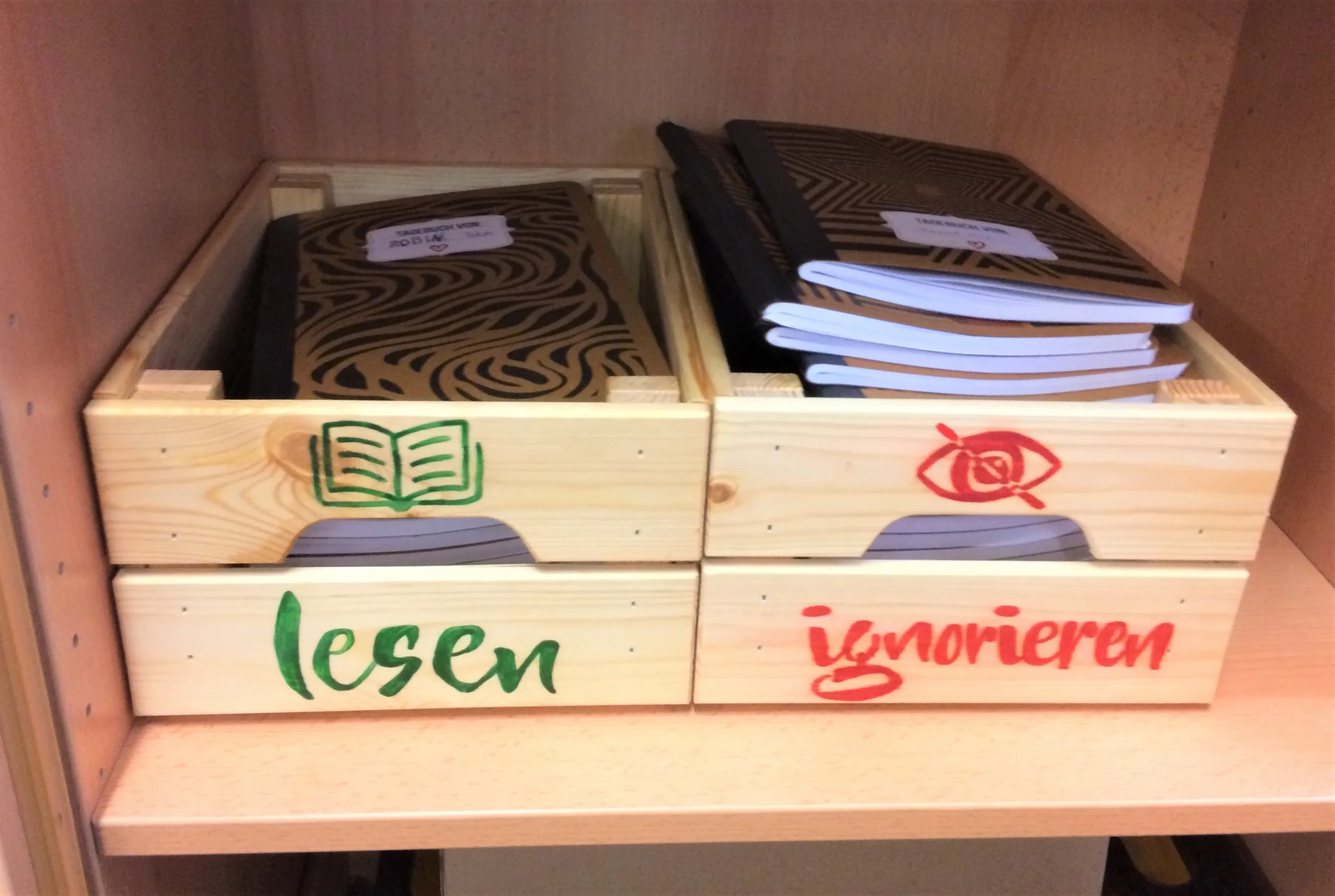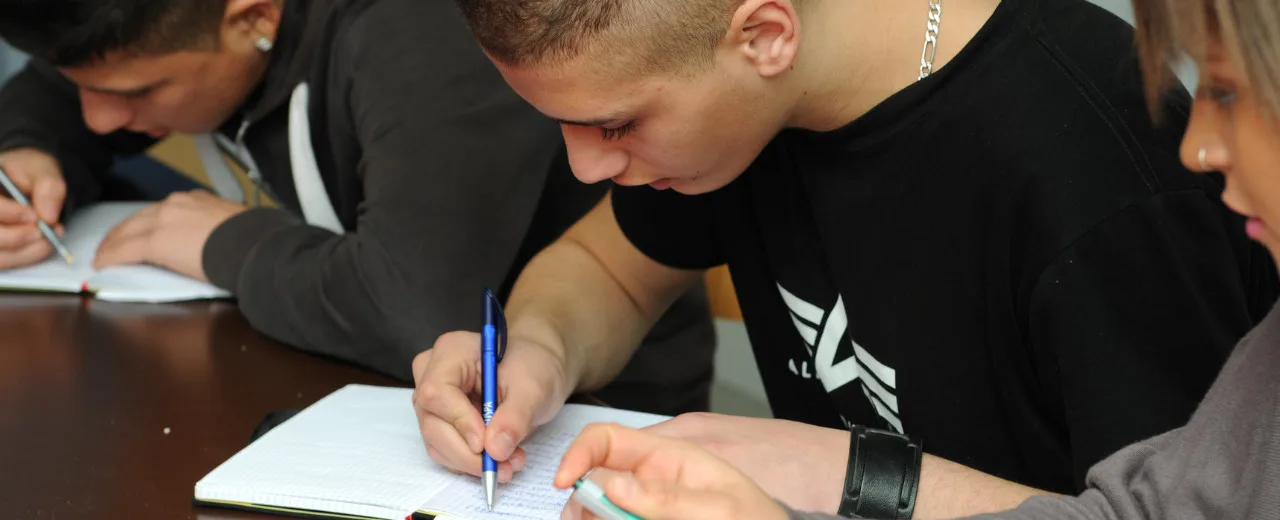 Biography as the key to educational success
Biography as the key to educational success
Strengthening children and young people through appreciative relationships
Today, Lena is 22 years old. She found an apprenticeship in her dream job and enjoyed going back to school for this. "I didn't have an easy life in the past, I sometimes felt like I was in hell!" Earlier, during school days, Lena behaved dismissively towards everything. She was aggressive. Her teachers couldn't find an approach to her. She was considered "unschoolable". No one believed that she would make anything of her life. It was her class teacher, who learned to use the diary method. A surprising change took place: "I learned to write a diary and to tell my story," Lena says today, "it was extremely important, I felt understood. The project helped me to break free: The diary, the safety, the people who listened to me." Lena has taken control of her life.
Necessity
An effective programme to strengthen disadvantaged children and young people in their educational success
Activity
Teachers are trained to build appreciative relationships with their students - the diary is a central tool in this process
Countable effort
Number of students reached and supported throughout Germany to pursue a positive educational pathway
Result
Pupils feel perceived, they develop access to their biography, recognise and use their strengths
Systemic effect
Social inequality is overcome through successful relationships at school. This creates (new) opportunities for disadvantaged children and young people
Background
“Lena’s story is touching and shows that change is possible as soon as a secure framework is created through successful relationship building,” says Jörg Knüfken from ChangeWriters e.V. Lena’s positive development is no longer an isolated case. Unfortunately, neither is the beginning of her story: “Everyone thinks I’m strong, but I have a lot of problems at home and at school. I already have to do so much at my age” (Yasin, 14 years). (Betz et al., 2022; Funcke et al., 2020; Klemm, 2023). Children like Lena and Yasin are made to realise that they are “deficient” at school of all places. They are left behind. This results in anger or them shutting down (Hunziker, 2015). This puts a strain on teachers, classmates and the young people themselves. This is where the diary work of ChangeWriters starts: Building and shaping relationships, overcoming distance! This is made possible by the effective programme “Writing History(s) Together”. The programme consists of four coordinated programme modules. A four-day practical seminar for educators is the starting point of the impact to develop. Participants experience the diary method and exercises that can be directly implemented to build relationships. They develop their personal implementation concept and incorporate its methods directly into their lessons, offer school workshops or fixed times for diary writing. They receive long-term professional support over a period of one and a half years. During the support phase, the pupils experience two action days in which commonalities and undiscovered potential become visible. During the annual school trip, the young people write down their stories, which are published in a diary and serve as positive examples for new students.
The good deed
With your donation, about 2000 students will have the opportunity to write in a diary and thus have a real chance to change their lives! They write down their everyday life and worries and thereby reflect on their behaviour. The diary becomes a trustworthy instrument for dialogue. The kids voluntarily share their story with their teachers, or put their diary in another box to ensure it is not being read. Either way, they receive appreciative feedback if they want this. It is accepted how and what they write. In this way, teachers get a life-world-oriented view of their students, including those who endanger their school-leaving qualifications through destructive or aggressive behaviour or who experience social disadvantages. Through this approach, relationships can be (re)built - the central basis for overcoming social inequality, creating opportunities and sustainable personal success in education.

About Germany
Berlin
Capital
84,079,811
Number of inhabitants
48,432.5
Gross domestic product per capita per year
0,942
Human Development Index
In Germany, the educational success of young people is still dependent on their social background: in 2021, a further 47,500 young people left school without qualifications (Klemm, 2023).
About the organization and further information
Association
ChangeWriters e. V.
Website

Further information and source
- Betz, T., Meyer-Hamme, A., Halle, A.-C., 2022. Soziale Ungleichheit und die Rolle sozialer Beziehungen in der (Ganztags-)Schule – Kein Thema für die Fortbildung?, Bertelsmann Stiftung, Gütersloh.
- Funcke, A. und Menne S., 2020. Factsheet: Kinderarmut in Deutschland, Bertelsmann Stiftung, Gütersloh
- Hunziker, D., 2015. Hokuspokus Kompetenz? Kompetenzorientiertes Lehren und Lernen ist keine Zauberei, hep Verlag, Bern.
- Klemm, K., 2023. Jugendliche ohne Hauptschulabschluss. Demographische Verknappung und qualifikatorische Vergeudung, Bertelsmann Stiftung, Gütersloh.
- Sliwka, A., Klopsch, B., Dumont, H., 2019. Konstruktive Unterstützung im Unterricht. In: Institut für Bildungsanalysen Baden-Württemberg (Hrsg.): Wirksamer Unterricht – Band 3, IBBW, Stuttgart.




